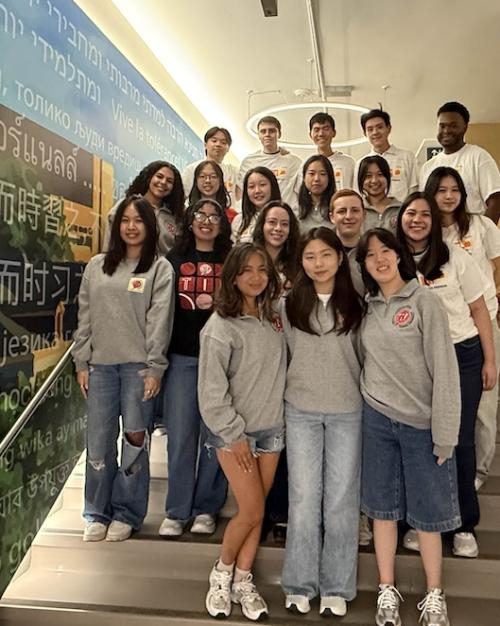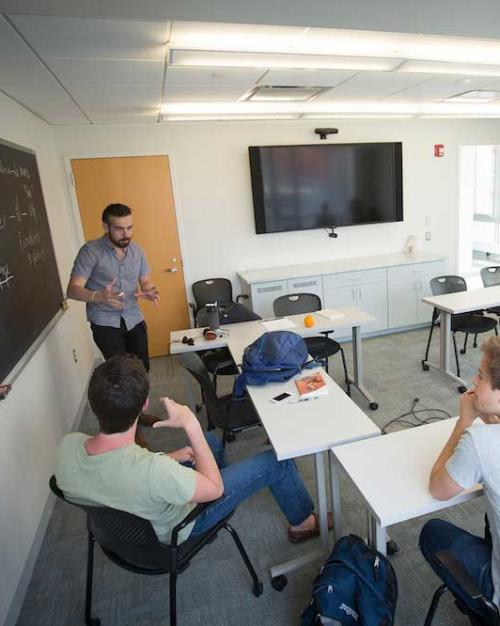Angelika Kraemer, director of the Language Resource Center (LRC) and Emma Britton, LRC Coordinator of Language Learning Initiatives, both in the College of Arts and Sciences, have received a grant from ACTFL for their project “Languages Across the Curriculum: Assessing Reflexivity and Critical Language Awareness.”
“Research is a pillar critical to ACTFL’s strategic plan and essential to the growth of our field. The submissions were of excellent quality, and we are thrilled to support this innovative and important research,” said ACTFL Director of Assessment and Research Margaret Malone in a statement.
Languages Across the Curriculum (LAC) is a novel programmatic model for world language education that has risen in popularity since the 1990s. The goal of the LAC program is to move language instruction out of the traditional classroom and integrate it into disciplinary areas. LAC sections often are attached to disciplinary “parent” courses and offered as one-credit co-requisite language courses. Content in LAC classes is not traditional grammar, but rather field-specific academic discourse, specialized vocabulary, and technical terms drawn from the "parent" class.
At Cornell University, LACs are typically taught by graduate assistants who are native speakers of the target language and disciplinary (rather than language) specialists. Since 2016, the LRC has supported more than 80 LAC courses in 14 languages across the disciplines; the courses have enrolled close to 500 students.
While LAC offers great promise in promoting critical curricular innovations, it is still an emerging field and as such is under-researched as a programmatic model, according to Kraemer. Kraemer and Britton’s project seeks to better understand learning outcomes by working toward a fuller articulation of students’ and teachers’ LAC experiences, using their reflections as both an assessment mechanism and a unit of analysis.
"Our study explores how students and teachers make sense of their experience with LAC programming, using qualitative approaches and ethnographic traditions to illuminate localized ways of knowing, being, and communicating,” said Kraemer. “Understanding the impact of LAC on all participants will allow us to build on its success and offer multilingual students more opportunities to engage with their disciplinary content in languages other than English."
Linda B. Glaser is news and media relations manager for the College of Arts and Sciences.





